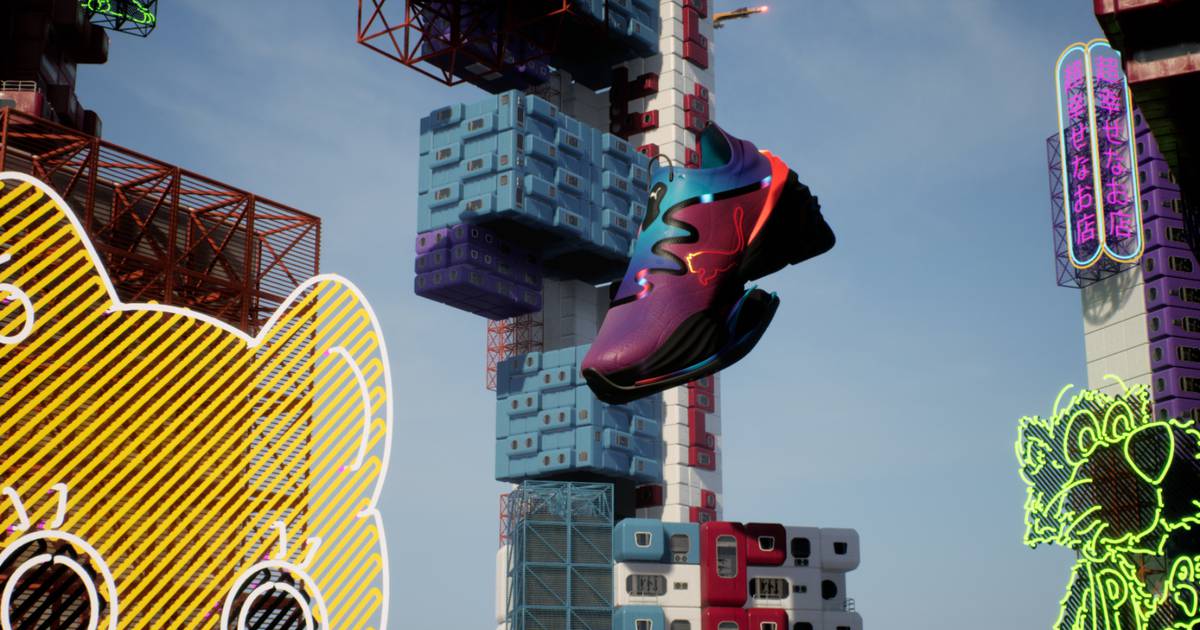
Puma’s Journey into the Virtual World: Embracing the Future of Retail
In the ever-evolving world of fashion and retail, companies are constantly seeking new ways to connect with consumers and stay ahead of the competition. Puma, a global sportswear brand, is no exception. Over the past year, Puma has been exploring the virtual world as a means of engaging with customers and creating innovative shopping experiences. Although the journey has not been without its challenges, Puma remains committed to the virtual realm and sees it as a potential source of future revenue.
One of Puma’s early forays into the virtual world was the launch of Black Station during New York Fashion Week. Black Station is a 3D online space where Puma showcased new products and ideas. It was here that Puma introduced its limited-edition sneakers, the NFRNO and Fastroid, which buyers could only claim by purchasing corresponding limited-edition NFTs (Non-Fungible Tokens). This move aligned with Puma’s competitors, Nike and Adidas, who had also ventured into selling virtual goods and establishing a presence in digital environments, such as video games.
However, Puma encountered some bumps along the way. It proved challenging to convince shoppers to return to Black Station without a product release or event to draw them in. Additionally, Puma had to shift its manufacturing and shipping processes to accommodate the demand for the physical products corresponding to the NFTs. This differed from their usual practice of producing shoes in large volumes with several months of lead time. Despite these obstacles, Puma remained determined to push forward and adapt to the changing landscape of retail.
Since the launch of Black Station, the market for NFTs has suffered a decline, and the hype around the metaverse has dwindled. These setbacks might have deterred other companies, but Puma sees a long-term opportunity in virtual spaces and products. By embracing the virtual realm, Puma aims to meet the new generation of shoppers where they live and create new ways of interacting with the brand.
Puma’s efforts have not gone unnoticed. The company has collaborated with gaming platforms such as Roblox and Fortnite, recognizing the potential of consumers spending time in video games and purchasing digital items. Ivan Dashkov, Puma’s head of emerging marketing tech and web3, noted that many consumers are willing to pay for purely digital items. This trend has motivated Puma to plan further launches across different platforms in the coming months, with the aim of boosting sales of digital goods and expanding its presence in virtual products and experiences.
Dashkov is aware of the collapse of the NFT market but remains undeterred. He believes that the frenzy was unsustainable and expects a shift towards different uses of the technology. Despite this setback, Dashkov maintains that there is still great potential for virtual goods, including those that are not on the blockchain. Platforms like Roblox, where users buy digital items, continue to attract a significant audience.
Puma recognizes that creating a successful virtual space requires more than just a place for product releases. To encourage customers to visit regularly, Puma aims to make Black Station a dynamic and interactive environment. Dashkov acknowledges that the space currently feels empty and hopes to attract more consumers by using it as a venue for mainstream products as well.
As Puma turns 75 this year, the company remains committed to the virtual world and the potential it holds. By embracing new ways of working, learning from challenges, and understanding the changing habits of consumers, Puma aims to stay at the forefront of the fashion industry. With more exciting launches planned and a focus on building its footprint in virtual products and experiences, Puma is ready to shape the future of retail in the virtual realm.






